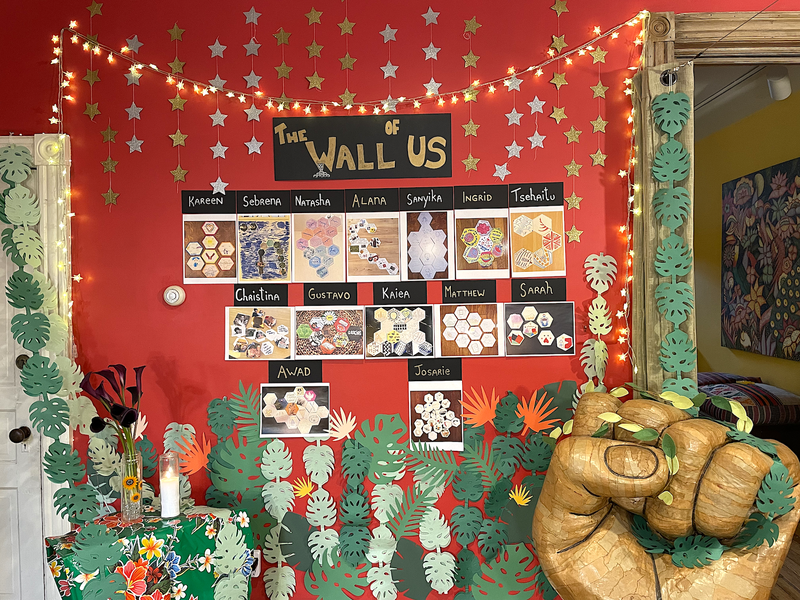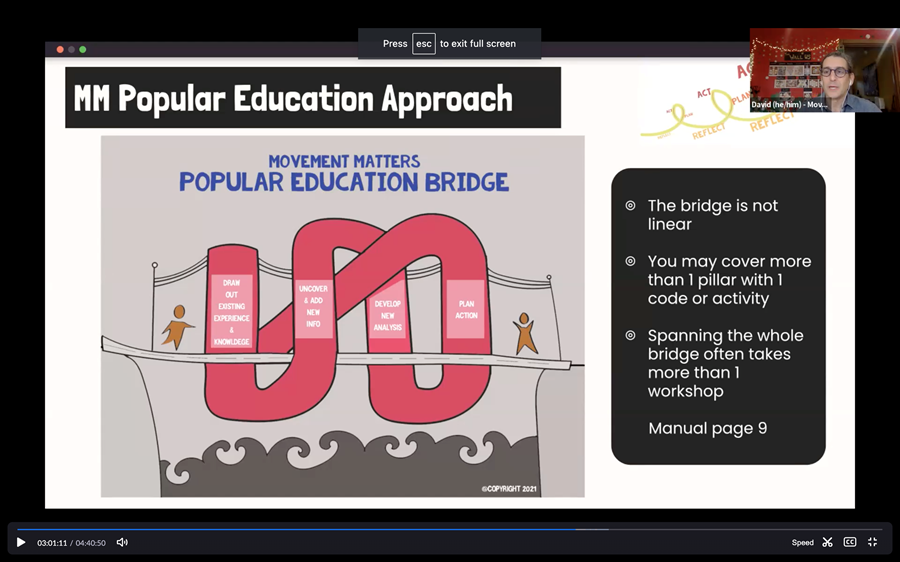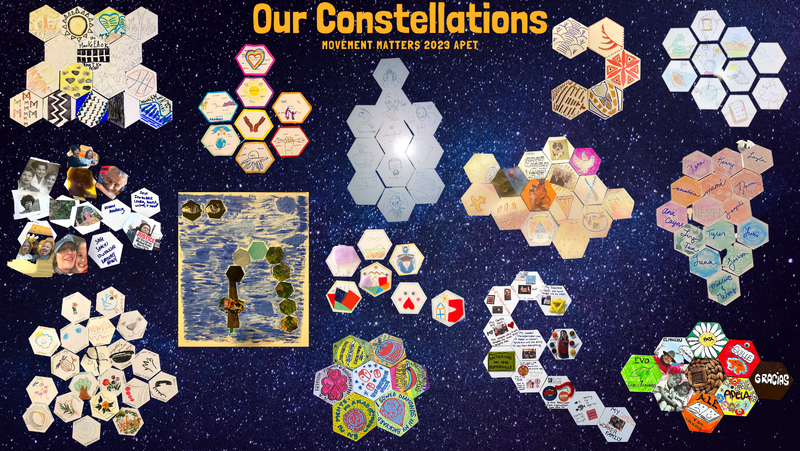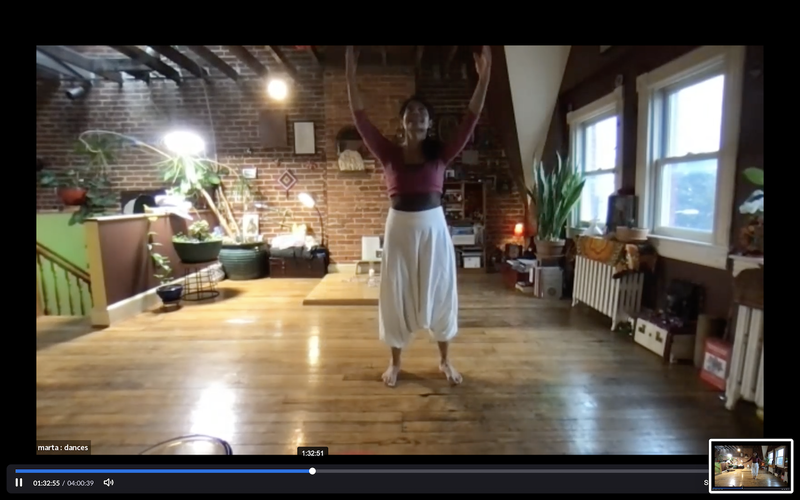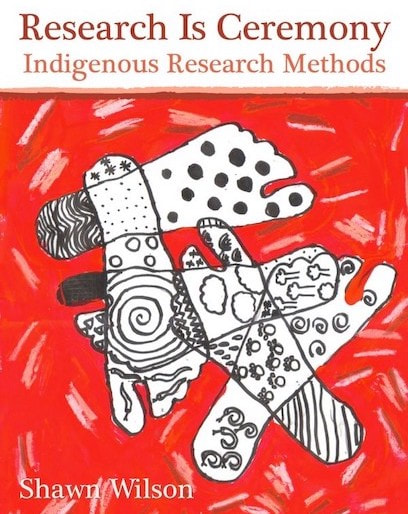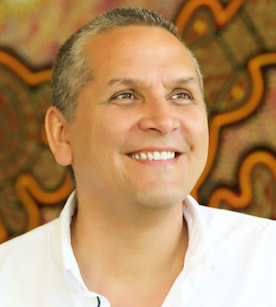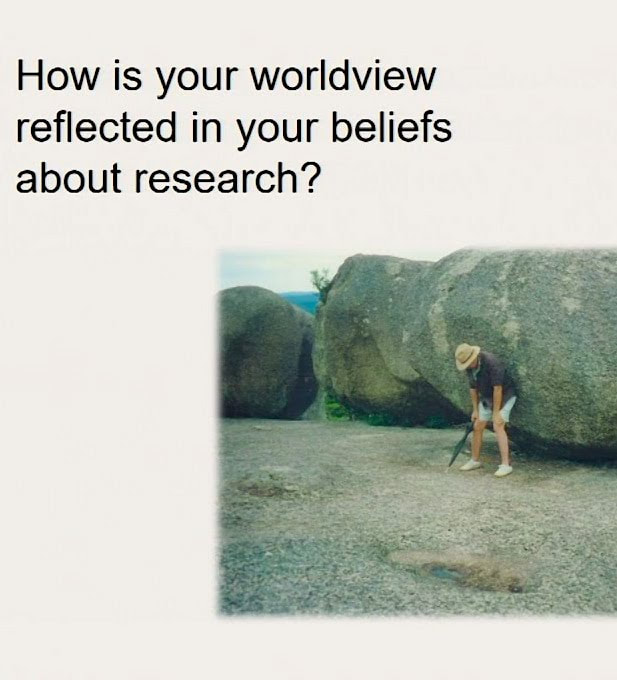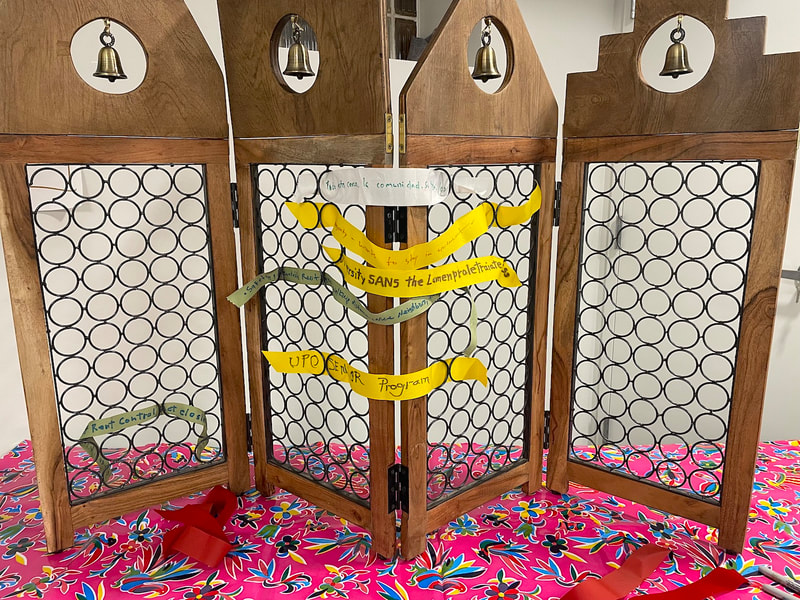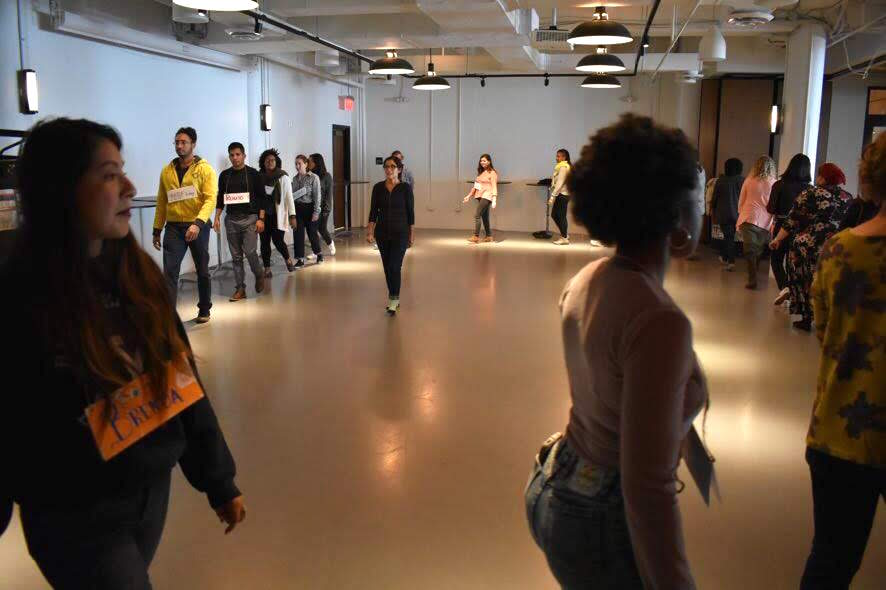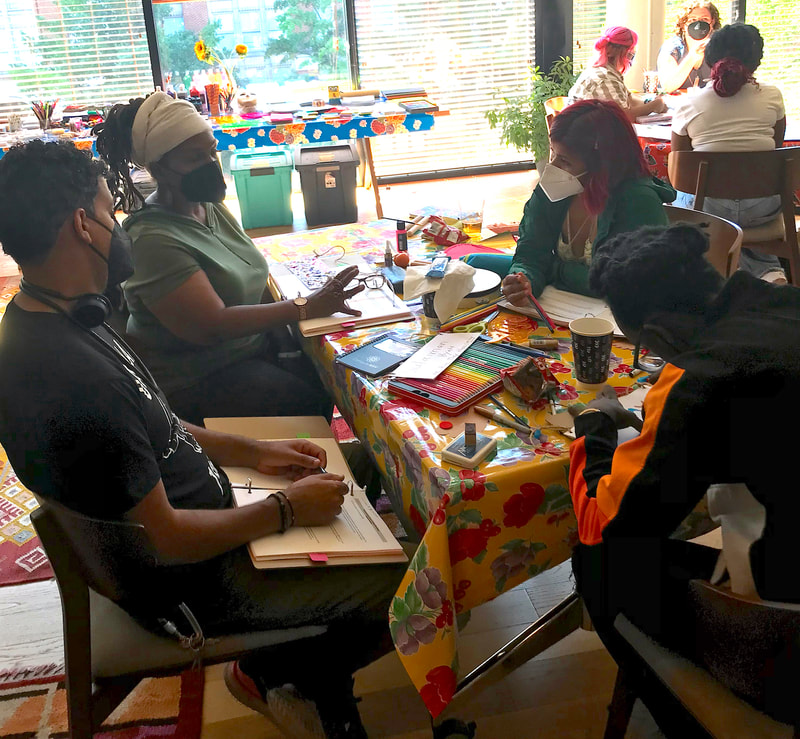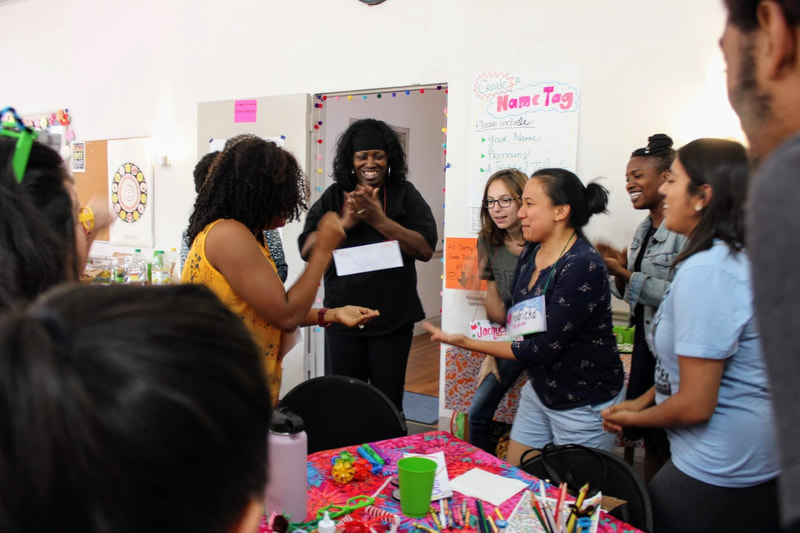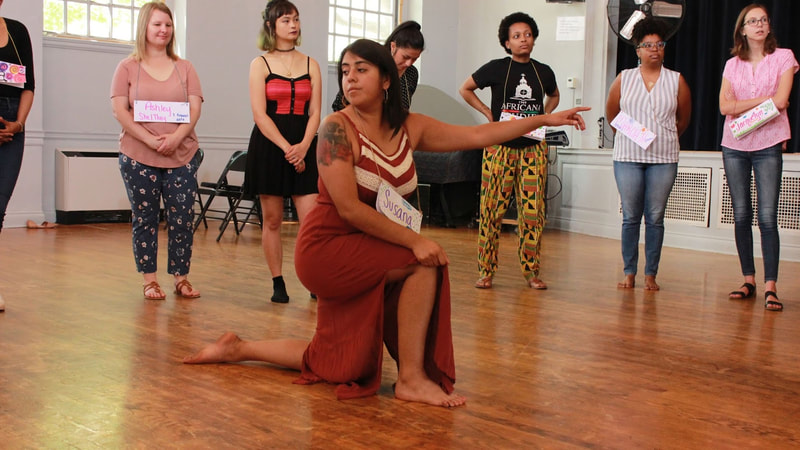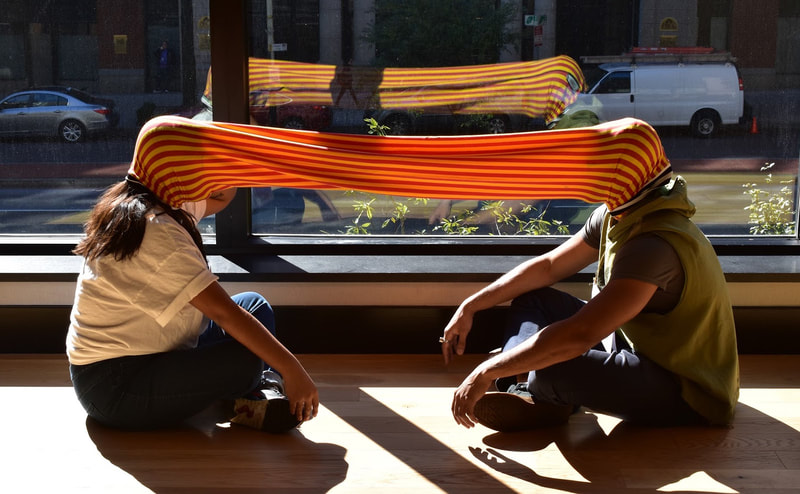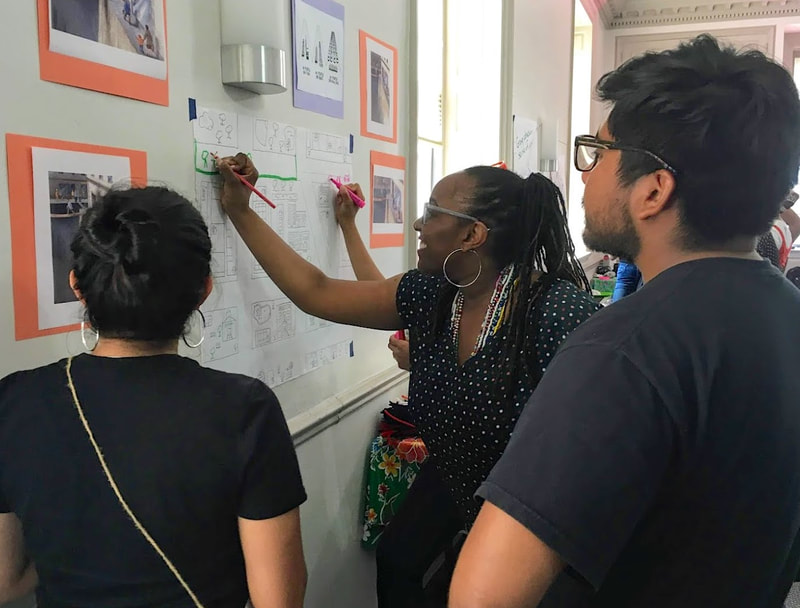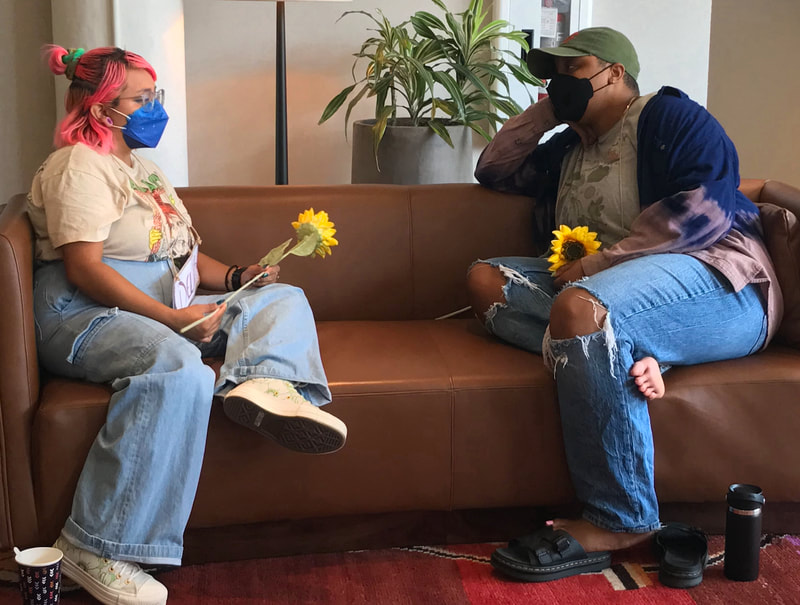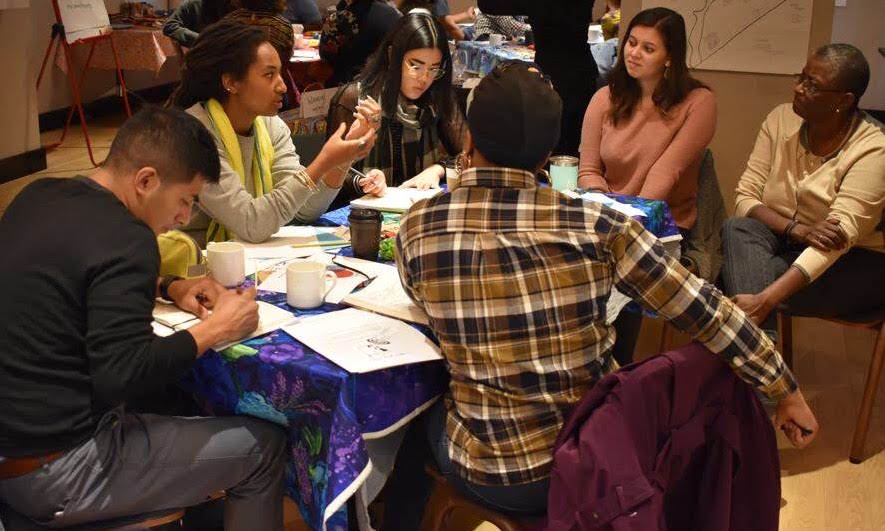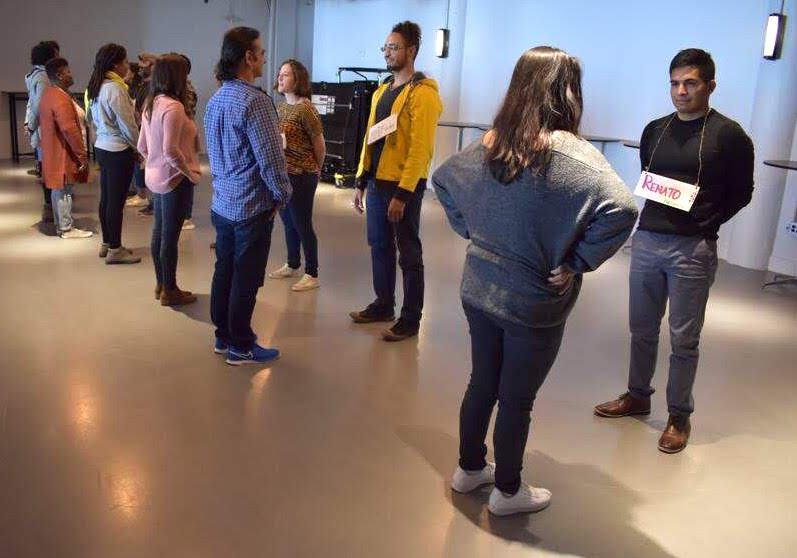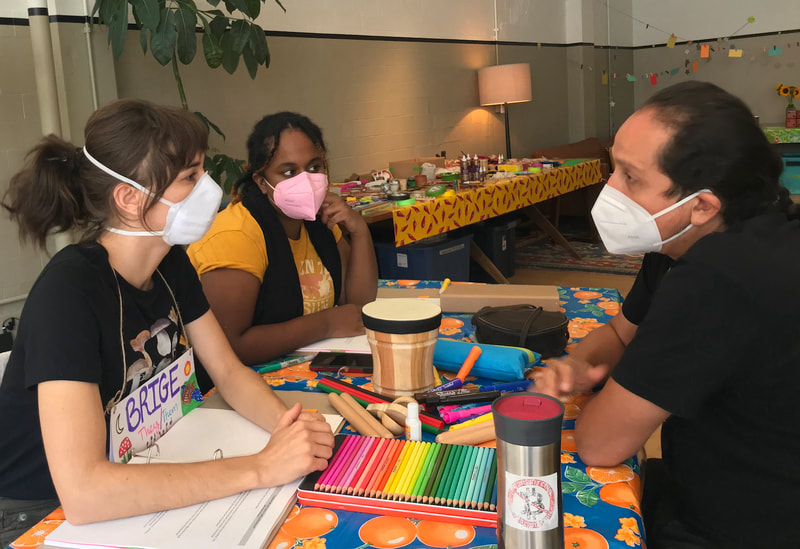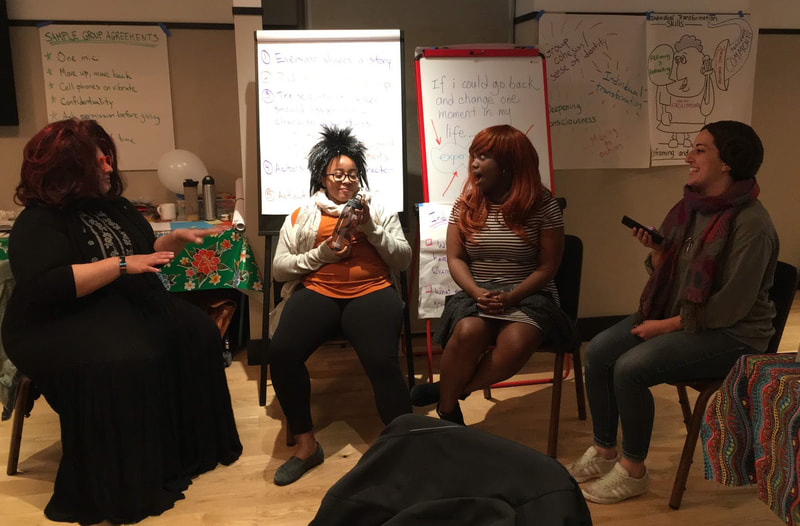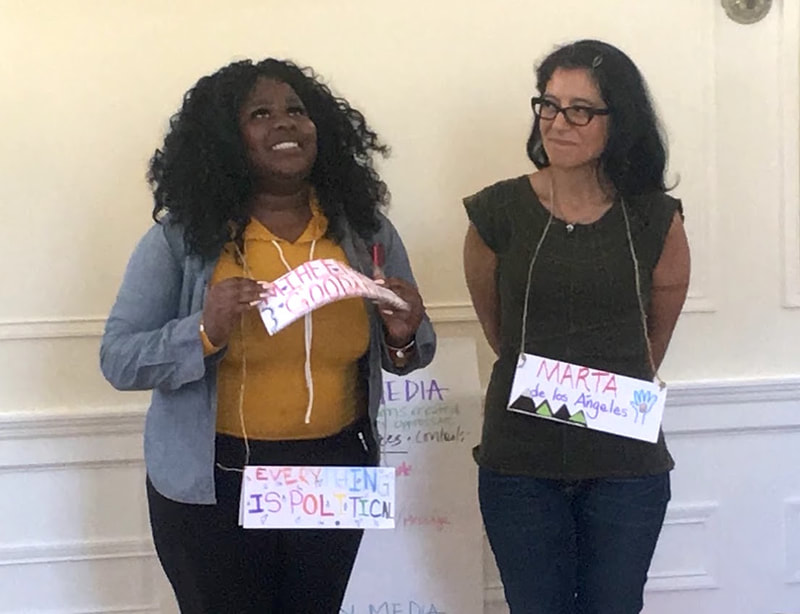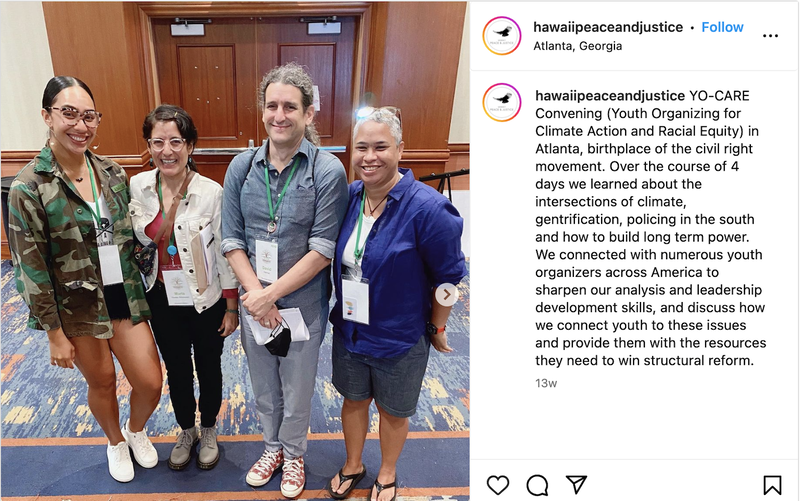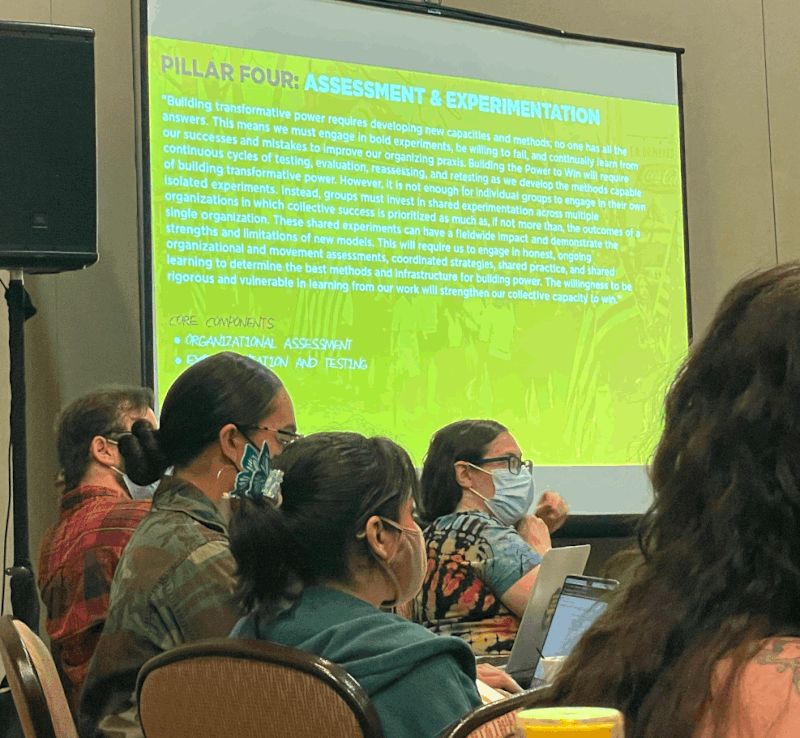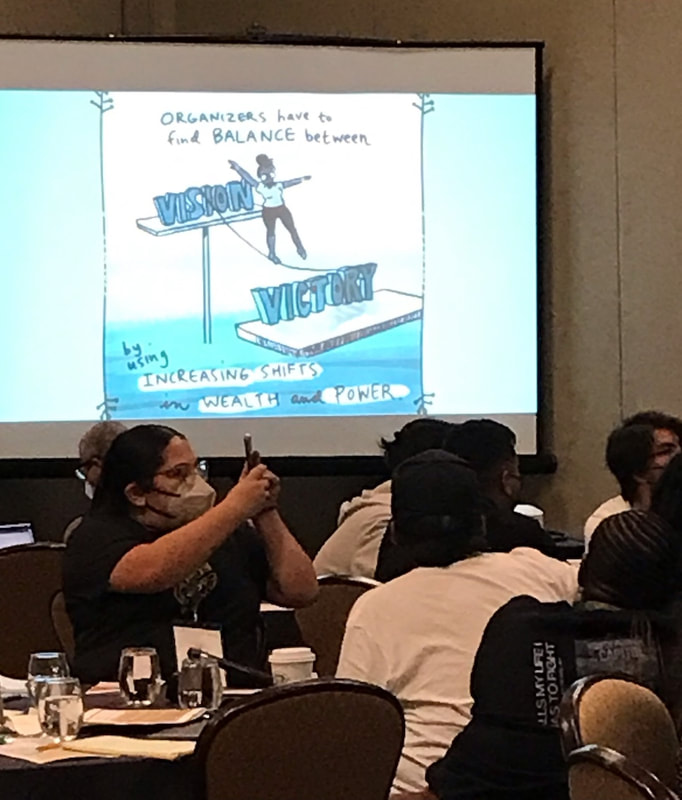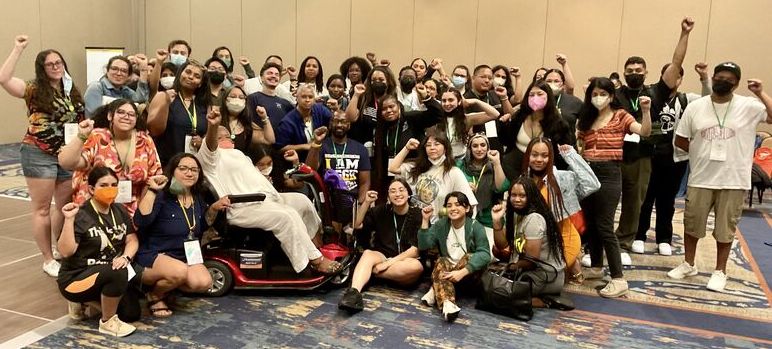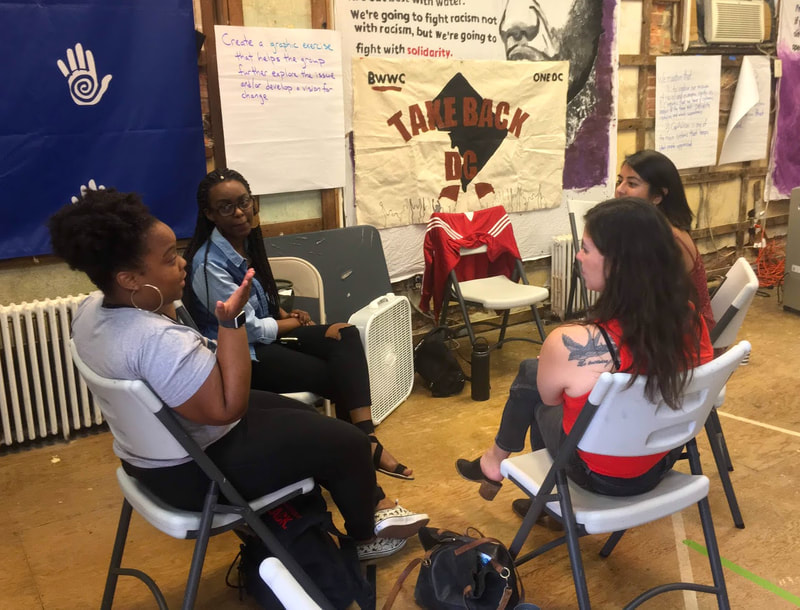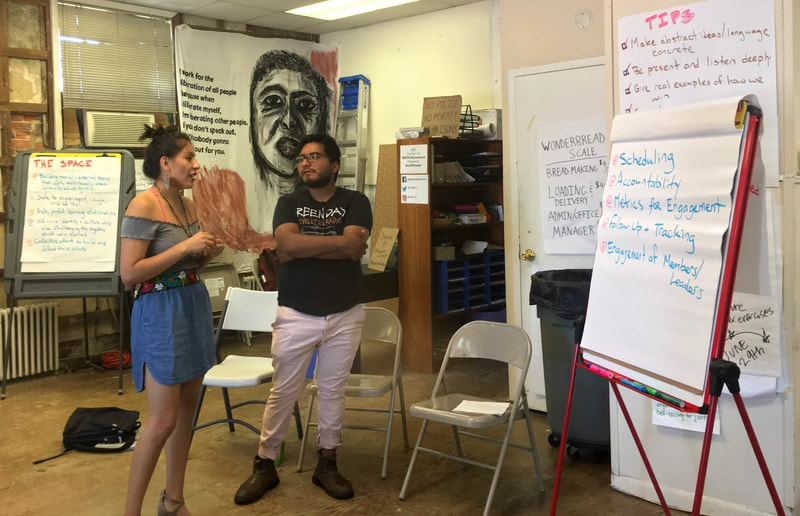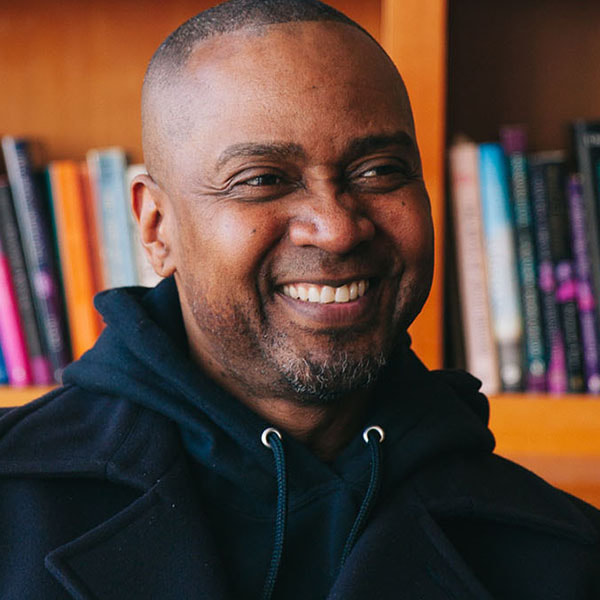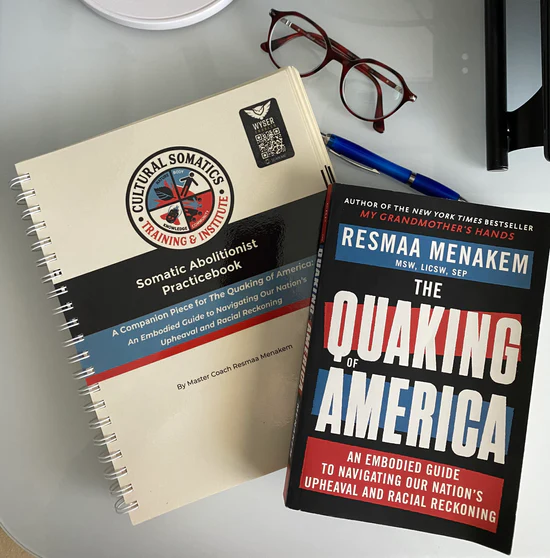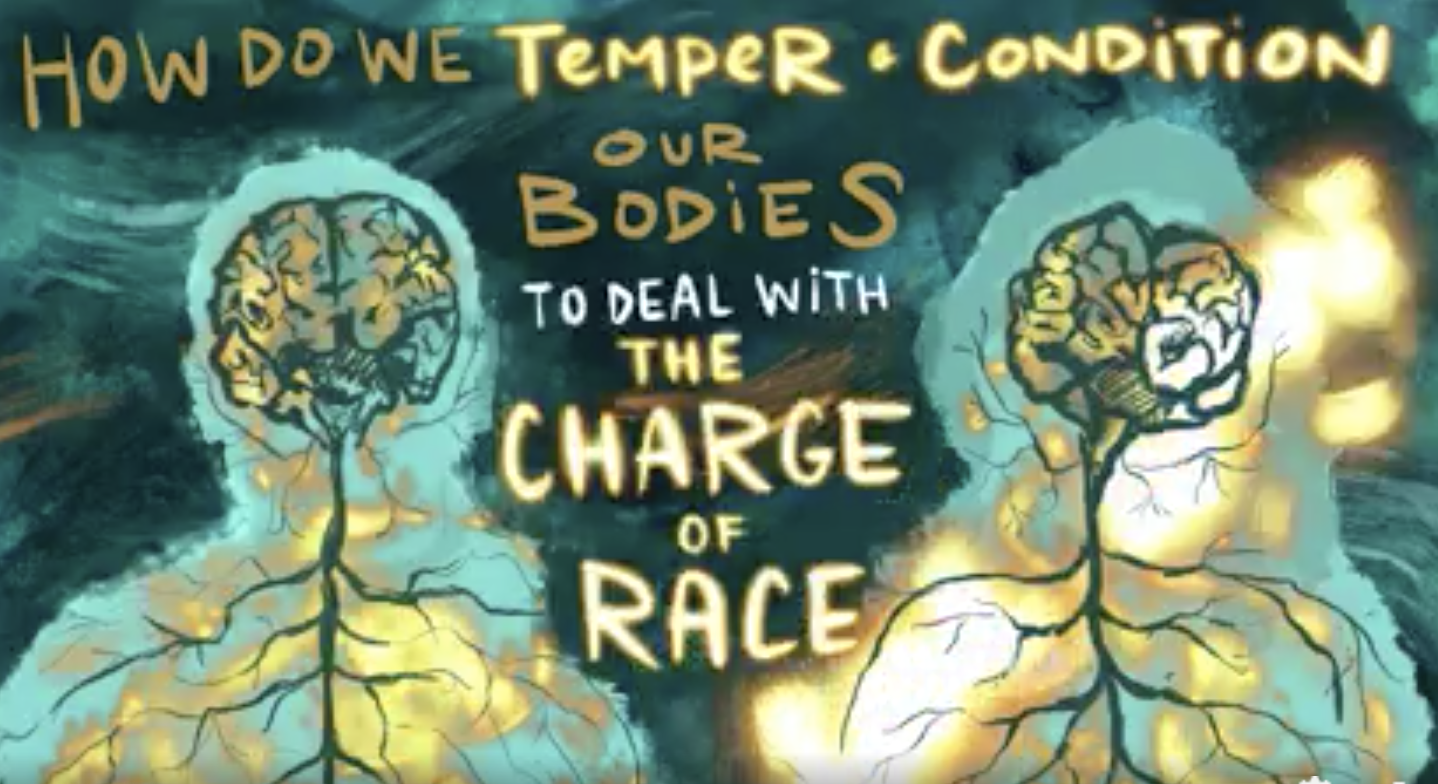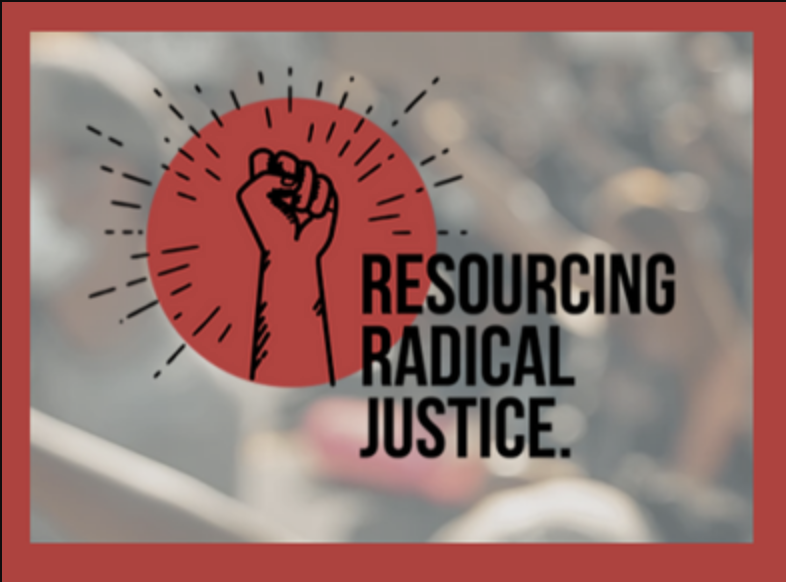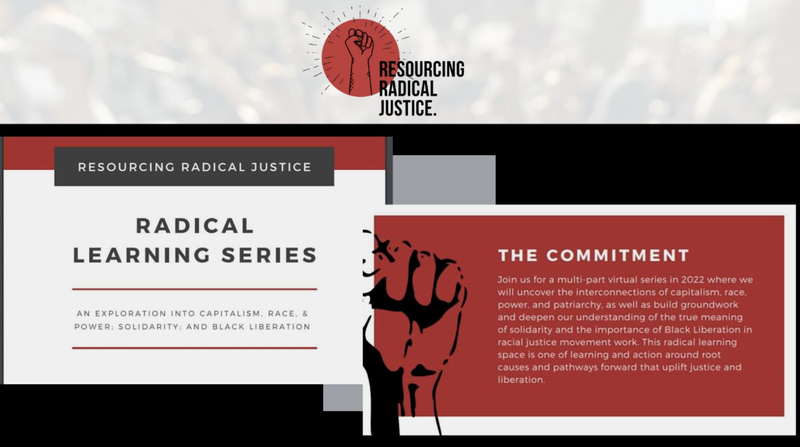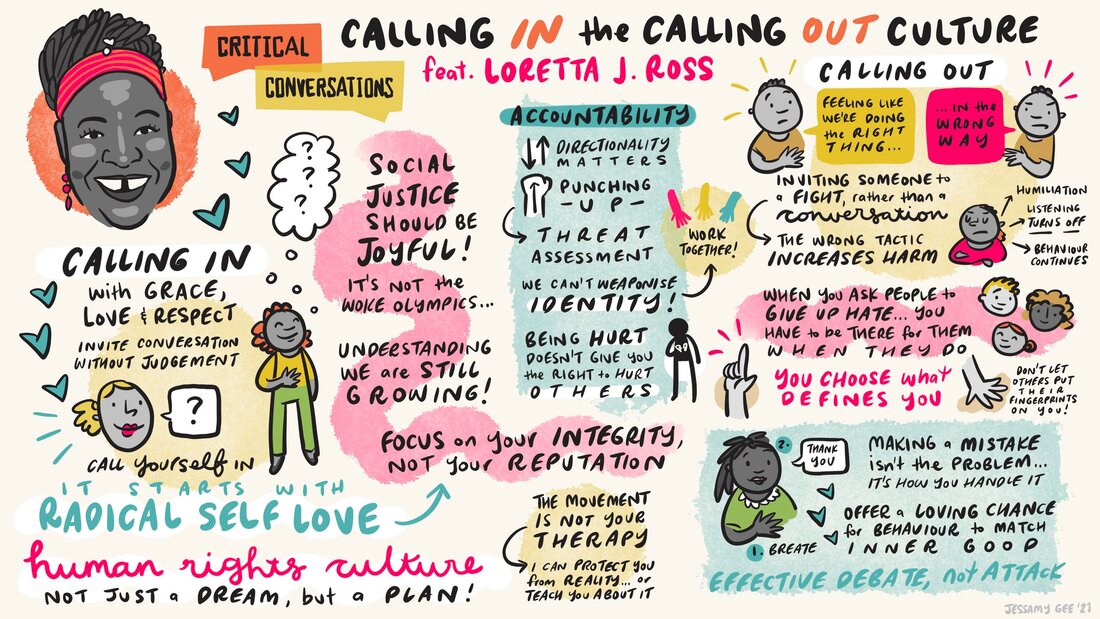|
Popular education is a bedrock of Movement Matters’ unique approach to community organizing and transformative change. We created our Advanced Popular Education Training (APET) to dive deep into both theory and practice while also allowing popular educators the space to contemplate and reshape their own practice. One of our central themes is the pivotal role of ritual and of somatic healing in building learning spaces for communities, in embodying a “learning by doing” of the world we are trying to build. Without radically transforming our internal processes for connecting, learning, and building together, our work for external change will collapse. Without places and spaces to put into action the vision, trust, communication and relationships built among members, the internal will collapse. And this fine balance, this process of titration, is what we accompany, energize, and sustain as popular educators and cultural organizers. “Movement Matters' Advanced Popular Education Training helped me take a step back and really dig deeper within myself, asking hard questions of who I am as a popular educator, how I got here, and why certain ways of training are difficult for me. I also found new knowledge and learning, and feel stronger and more equipped to curate and facilitate popular education spaces. I feel supported and walked away from the training feeling seen in ways that: 1.) I didn't know I wasn't receiving, and 2.) I didn't know I had been missing or could have access to.” A benefit of the virtual space of the APET is the ability to integrate practice into the life of the training. The time in between sessions is used not just to reflect and process information, but also to experiment with and embody new practices. We are also able to spend one-on-one time with participants in between sessions to tailor course learning to their specific needs. Another key element of popular education that is well served by this more individualized approach is the development and integration of codes as a tool for deeper concientizacion. Being able to envision and integrate prompts that allow community members to simultaneously recognize issues that they face, share their knowledge and understanding, and open the door for new information and perspectives are difficult skills to hone, especially in the abstract. Being able to work through specific examples with participants based on real-time community issues grounds this important piece of work that differentiates popular education from political education. The APET continues to be a unique offering of Movement Matters’ training work. It integrates beautifully with our Advanced Facilitation Training and continues to be a way to build deep relationships with organizers and change makers across the country. “This advanced training provided a variety of ideas for popular education activities and practices that I can bring back to my organization, and a framework to think about the purpose of the practice so that we are not just doing popular education for the sake of it—without moving our peoples to action. I believe I will be more creative in developing our popular education approach with our members, guide conversations way better, and also be more intentional about how I do it and why.” Our 2023 Advanced Popular Education Training was made up of organizers, popular educators and artists from groups around the country including: National Domestic Workers Alliance, African Communities Together, SEIU1199, Kalonize/Aloha ʻAina, PeoplesHub, Black Organizing Center, Center for Popular Democracy, and the Center for Economic Democracy. To apply, visit: Advanced Training Series Application deadline: Monday, August 2nd. Limit 8-10 participants. Questions? [email protected]
For more information on our Advanced Popular Education Training or to bring an Advanced Training to your organization, connect with us. Movement Matters is based in Washington, DC. We work regionally with various communities and with national partners. Research is an important part of community organizing. It helps us learn more deeply about the issues at hand and launch better and more strategic campaigns. When done correctly, it can also be a tool for community building and member engagement. However, research has a lot of negative associations in our communities, and for good reason. Traditional research has done extensive harm, including treating people as subjects instead of the experts in their own lives. In his book, “Research Is Ceremony: Indigenous Research Methods”, Dr. Shawn Wilson tells the story of another way to do research, one that honors relationships and holds us accountable to one another, to more-than-humans, and to the spirit world. He weaves together his tradition of oral storytelling with his journey as an Indigenous scholar to carve out the uniqueness of Indigenous research methods. We at Movement Matters found this perspective to be incredibly helpful as we work with organizations and communities to navigate member-led research processes and as we have helped the Indigenous Environmental Network develop popular education curricula for their Indigenous Just Transition framework. Dr. Wilson’s recognition of the need to contextualize understanding within relationships and conditions, to center the role of oral storytelling as a means of holding and transferring knowledge, and to acknowledge the dangers and opportunities of existing in “transitional spaces” between two worlds, are all important paradigms to integrate into community process.
Dr. Wilson also highlights the role of ceremony and ritual to help people “step beyond the everyday”. This transformation of purpose and unity of focus can also connect to the process of understanding the issues we face in our communities. Even for non-Indigenous communities, the integration of ritual and culture can break community members free from dominant paradigms and allow for new insights and understanding to emerge. This book can help organizers think about the ways in which their work on the ground can lead to collectively held knowledge. Dr. Wilson’s own journey is a reminder to honor the ways that our life experiences, our intuition, and our relationships are all elements of how we learn and build our collective knowledge. His words are also a “setting of the stage” to take action and create change around us for the sake of our communities and the relationships we hold. To read more about Dr. Shawn Wilson Watch Dr. Wilson lead a presentation about "Research Is Ceremony" (ceremony focus) Watch Dr. Wilson lead a presentation about "Research Is Ceremony" (research focus) Since April of 2022, Movement Matters has been working in collaboration with several legal service providers, social workers and community organizing groups in a joint project to keep DC tenants in their homes by fighting evictions. With the end of the COVID eviction moratorium and an absence of city funding and leadership on this issue, several thousand DC residents face eviction each month. In response to these conditions, Eviction Prevention in Communities (EPIC) has been building up a canvassing apparatus to ensure that tenants who are facing evictions know their options and are connected to long-term infrastructure to build tenant power. This month, EPIC launched the Eviction Defense Hub. This "Hub" is modeled after Silicon Valley DeBug's participatory defense project in the criminal courts, which allows individuals and communities to take back agency over their involvement with the overly bureaucratic and puzzling "criminal justice" system. Organizers from the Latino Economic Development Center's Tenant Organizing Team, Empower DC, DC Jobs with Justice, Bread for the City, and Movement Matters have adapted this tool to landlord-tenant court. Movement Matters has helped to ensure that Hub meetings incorporate cultural organizing and popular education to create stronger bonds among tenants and connect to the deeper values of anti-eviction work. We are also assisting community partners to develop strategic organizing responses to issues that surface during Hub meetings. The Hub comes at a time when government rental assistance and tenant protections are either being diminished or eliminated by the DC City Council and Mayor while landlord attempts to evict tenants are rising at alarming rates with no end in sight. Eviction Defense Hub weekly meetings build solidarity and mutual aid among tenants, encourage knowledge and skill sharing between those in the eviction process, and strengthen sustainable long-term collective power by surfacing deeper systemic issues and potential structural solutions. Connect with us for more information on MM's Technical Assistance and Action Coalitions work. Movement Matters is based in Washington, DC. We work regionally with various communities and with national partners. Facilitating Transformational Spaces & Experiences: |
AuthorsMOVEMENT MATTERS Archives
October 2023
Categories
All
|
